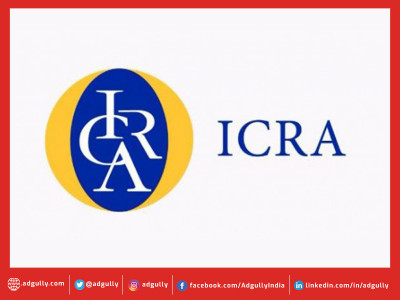ICRA predicts 8-10% growth in alcobev industry revenues in FY2024
ICRA estimates steady revenue growth of 8-10% for its sample set of domestic alcohol beverages (alcobev) companies in FY2024. After two consecutive pandemic-hit years of FY2021 and FY2022, the Indian alcobev industry witnessed a strong revival in FY2023, led by healthy demand across both the segments, that is, spirits and beer. ICRA’s sample set companies witnessed a YoYgrowth of ~20% in revenues in FY2023 to ~Rs 26 billion, exceeding the pre-COVID levels. During Q1 FY2024, the spirits industry reported a ~13% YoY increase in revenues despite being the lean season for the segment, while the beer industry, despite being the peak season, witnessed a marginal decline of ~1%, due to the unseasonal rainfall.
Speaking on this, Kinjal Shah, Vice President and Co-Group Head – Corporate Ratings, ICRA Limited, said, ICRA expects alcobev consumption to remain steady, supported bygrowing urbanisation, rising disposable incomes, favourable demographics, and easing regulatory environment by some states. A sub-par monsoon with warm weather amid ongoing El Nino conditions will further drive demand, particularly for beer, in FY2024”.
However, despite a steady demand, the OPM of ICRA’s sample set companies ispoised to contract further by ~90-140 basis points in FY2024, following a sharp 300 basis points decline in FY2023. The primary reason for the expected margin contraction is the elevated prices of key inputs in the current fiscal, like non-basmati rice and other grains such as maize, used to produce extra neutral alcohol (ENA), the base to manufacture spirits. The impact of a sub-par monsoon, the El Nino conditions, and the Government measures on grain prices thus remain crucial to ascertain the industry cost structure.
Packing material costs also remain high, particularly glass, led by an increase in soda ash prices. However, prices of barley, the key raw material for producing beer, have witnessed correction in recent quarters and are likely to remain stable in the near to medium term. Moreover, the availability and consequent pricing pressures from the diversion of grains towards production of ethanol, which is seeing increased demand due to the Government blending norms, is also a key influencing factor to monitor for the industry.
“The timely increase in the selling price of the alcobev products from state governments is the key to absorbing the rise in input costs. This typically happens on an annual basis at the beginning of a fiscal; hence, any mid-year raw material price volatility must be absorbed by the manufacturers. Some key states, including Karnataka, Haryana, Delhi, and Uttar Pradesh, have permitted the increase in prices of alcobev products for the current fiscal. Further, the Madhya Pradesh government expanded the distribution network for alcobev products last year, which continues to provide an upside to the industry in the current year as well,” Shah added.
While ICRA’s sample set undertook a sizeable capex at ~5% of the revenues in FY2023, the same is expected to moderate to ~2-3% in FY2024 and FY2025 as key players enhanced their capacities recently. Majority of the ongoing capacity addition is attributed towards beer manufacturing, which is expected to come up in the near to medium term with some players looking to expand to new states and also deepen penetration in the existing regions. ICRA expects the industry to continue to demonstrate stable and healthy credit metrics supported by strong cash flow generation and limited debt addition.




Share
Facebook
YouTube
Tweet
Twitter
LinkedIn